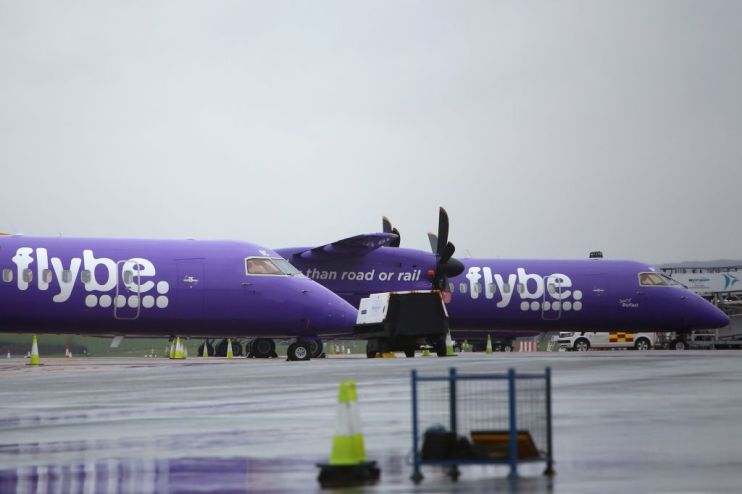Budget 2020: Pilots call for air passenger duty tax suspension

The British Airline Pilots Association (Balpa) has called on chancellor Rishi Sunak to suspend air passenger duty in next week’s budget to protect the struggling aviation industry and avoid another airline collapsing like Flybe.
Global airlines have been severely damaged by the coronavirus outbreak, with international trade body IATA predicting a 24 per cent reduction in demand across the UK and western Europe.
Carriers such as British Airways, easyJet, Norwegian and Ryanair have already started cancelling flights or issuing warnings about the impact of coronavirus on their revenues and profits.
Yesterday regional carrier Flybe collapsed after a last-gasp £100m government loan fell through, leaving the firm without enough cash to keep operating.
It said that the coronavirus outbreak had cut its bookings by 30-40 per cent, the final nail in the coffin for the beleaguered firm.
To mitigate the impact of the disease, Balpa said that the government should suspend the tax for six months, and consider more significant reductions in the longer term.
Sign up to City A.M.’s Midday Update newsletter, delivered to your inbox every lunchtime
General secretary Brian Strutton said: “APD is already a huge burden on the UK aviation industry costing the airlines £3.7bn per year, and is by far the highest in Europe.
“Demand is down so much over the summer that we could easily see more airlines collapse without Government action, and that would have a significant knock-on effect to the economy.
“The Government’s u-turn on the support it promised was the main reason that Flybe collapsed this week. Unless the Government wishes to see yet other UK airlines go under we must see some action from the Treasury.”
Balpa’s comments echo those of Airlines UK, who yesterday said that “APD is the prime example of a disproportionate and penalising policy that is actively holding [the aviation industry] back”.
The calls come after a month in which airline stocks shed a quarter of their market capitalisation, or nearly $41bn, according to Russ Mould, investment director at AJ Bell.
According to Mould, “the sector’s valuation now stands at a five-year low and 45 per cent below its January 2018 peak of $205bn”.